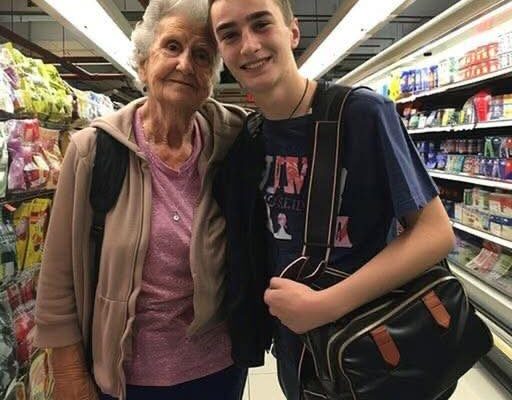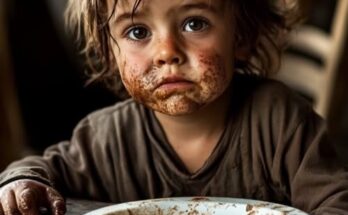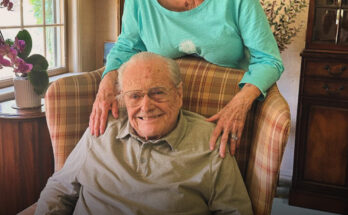The grocery store was crowded that day, and at 72, I suddenly felt vulnerable. The fluorescent lights seemed harsher than usual, the noise more disorienting. My arthritis flared with the cold spring rain, making each step between the aisles a small victory. When I finally reached the checkout line, my hands trembled as I reached into my purse—my wallet was gone. Panic washed over me. Had I left it at home, or worse, had someone taken it?
“I’m so sorry,” I whispered to the cashier, a young woman whose patient smile faltered only slightly. “I’ll have to come back later.”
It wasn’t much—milk, bread, eggs, some canned soup—basic necessities for the week ahead. But the embarrassment burned hot on my cheeks. Years of independence, and now this moment of helplessness in public. I began to return my items when a voice behind me spoke up.
“I’ll pay for it.”
I turned to see a boy, maybe fifteen, holding out a twenty-dollar bill. He wore faded jeans and a hoodie that had seen better days. He didn’t look like he had much to spare, but his eyes were kind and determined.
“Oh, I couldn’t possibly—” I started.
“Please,” he insisted. “My grandma says doing good brings good back. It’s how we get by.” His smile was gentle, without pity.
Tears filled my eyes as the cashier rang up my groceries. “Thank you, son. What’s your name?”
“Mateo,” he replied, counting out his money carefully.
“I’m Eleanor. How can I repay you?”
He simply said, “Just pay it forward. That’s payment enough.”
I watched him walk away, shoulders straight despite his worn shoes. Something about his dignity touched me deeply.
The next day, I baked chocolate chip cookies and tucked fifty dollars into a small envelope. I’d seen Mateo walking toward the apartments on Cedar Street. After some inquiring, I found the right building and knocked on door 3B.
A kind-faced woman with salt-and-pepper hair opened the door. “Can I help you?”
“I met your grandson yesterday. Mateo?”
Her eyes softened. “That’s my boy. What did he do now? Something good, I hope?”
I explained our encounter, and she invited me in for coffee. Their apartment was modest but immaculate, filled with family photos and hand-crocheted throws.
“That’s Mateo for you,” his grandmother sighed. “Always giving what little he has.”
I gave her the cookies and handed Mateo the envelope when he came home from school. His grandmother teared up watching him. “He’s been saving every penny for a new computer for school. His old one barely runs the programs he needs for his coding class.”
Something clicked in my mind. “I might be able to help more.” My late husband Thomas had been a computer science professor at the state university. I still maintained connections there, people who owed Thomas favors.
Three phone calls and a week later, Mateo had not only a new laptop but also a spot in the university’s summer coding program and a small educational grant. His talent, once given the right tools, began to flourish.
When he came to thank me, he brought groceries—far more than the items I’d nearly left behind that day.
“You didn’t have to,” I told him.
“It’s how the circle works,” he replied with that same gentle smile.
I gave him technology and opportunity. He gave me purpose and connection.
The kindness of a boy in a checkout line created ripples neither of us could have imagined. Sometimes our greatest gifts come disguised as moments of vulnerability, and our greatest strengths arise from asking for help.
In the end, I was the one most blessed by our chance encounter. My refrigerator stays full now, but more importantly, so does my heart.



